Support Local: Kaipaki Dairies
16 December 2021
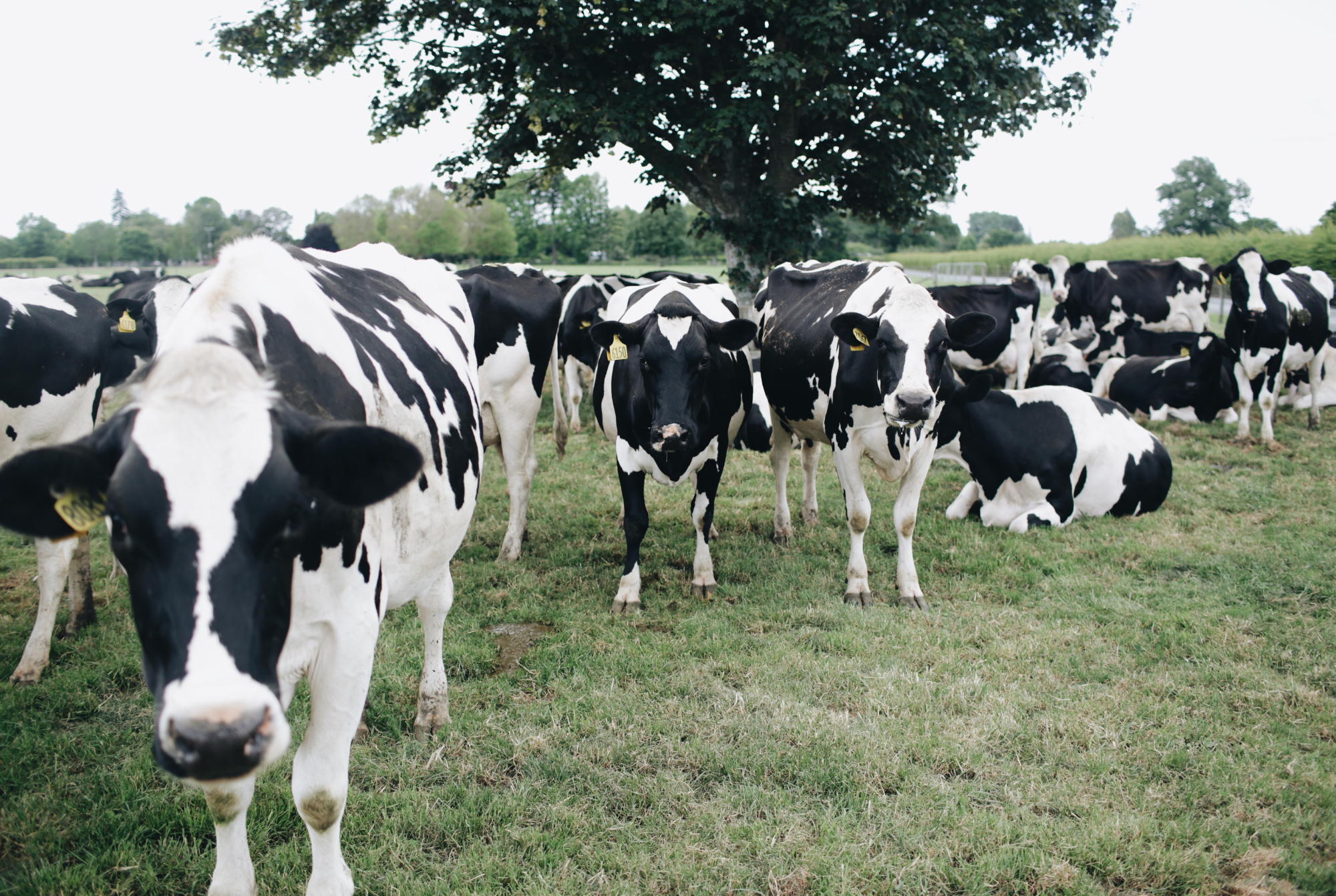
Following the success of our very first Project Local collaboration with Kane’s Strawberry Farm – which came to a close last week – we’re shining the light on another incredible Waikato producer. For about a month now, we’ve been working with Kaipaki Dairies to reduce our plastic waste in stores and in the bakery. And while we’re fairly certain that it wont be long before these guys become a household name, let us be the first to introduce you to the team behind this exciting innovation in milk delivery…
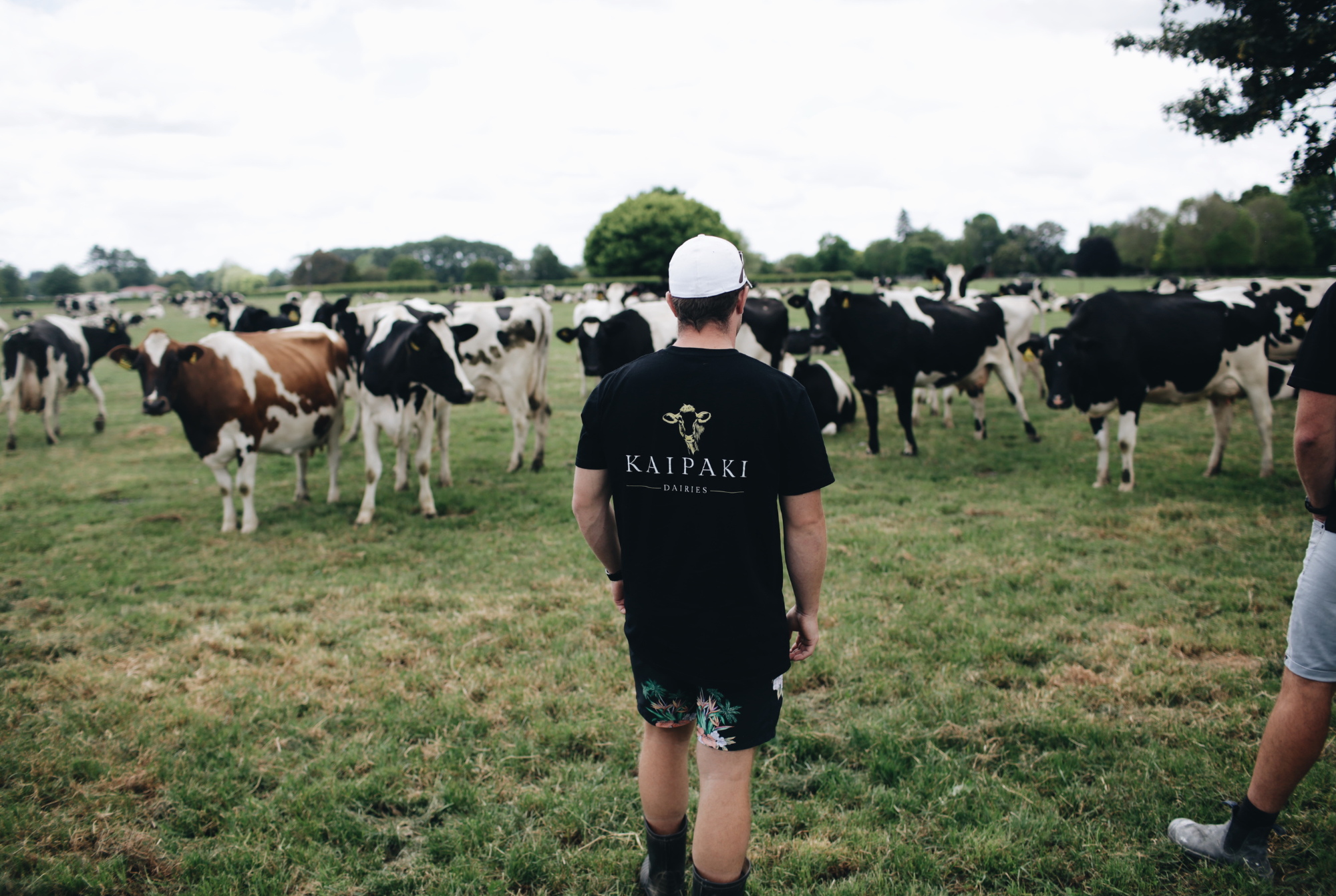
What Makes Kaipaki Different?
Remember the good ole’ days when you’d leave your empty glass milk bottles out for the milkman (or woman) each night and they’d be replaced with fresh new bottles in the morning? It was local and familiar and many of us looked forward to it each day. A circular economy that we somehow moved away from in the past twenty years when we were presented with the convenience of picking up a 2L plastic bottle during our supermarket shop instead.
But if you’re anything like us, you sort of miss those daily visits and you sort of hate the idea of all the waste those plastic bottles are creating. Especially with so much talk about sustainability these days and how we can each play our part. But what’s the alternative? Well, that’s where Riley and John of Kaipaki Dairies come in…
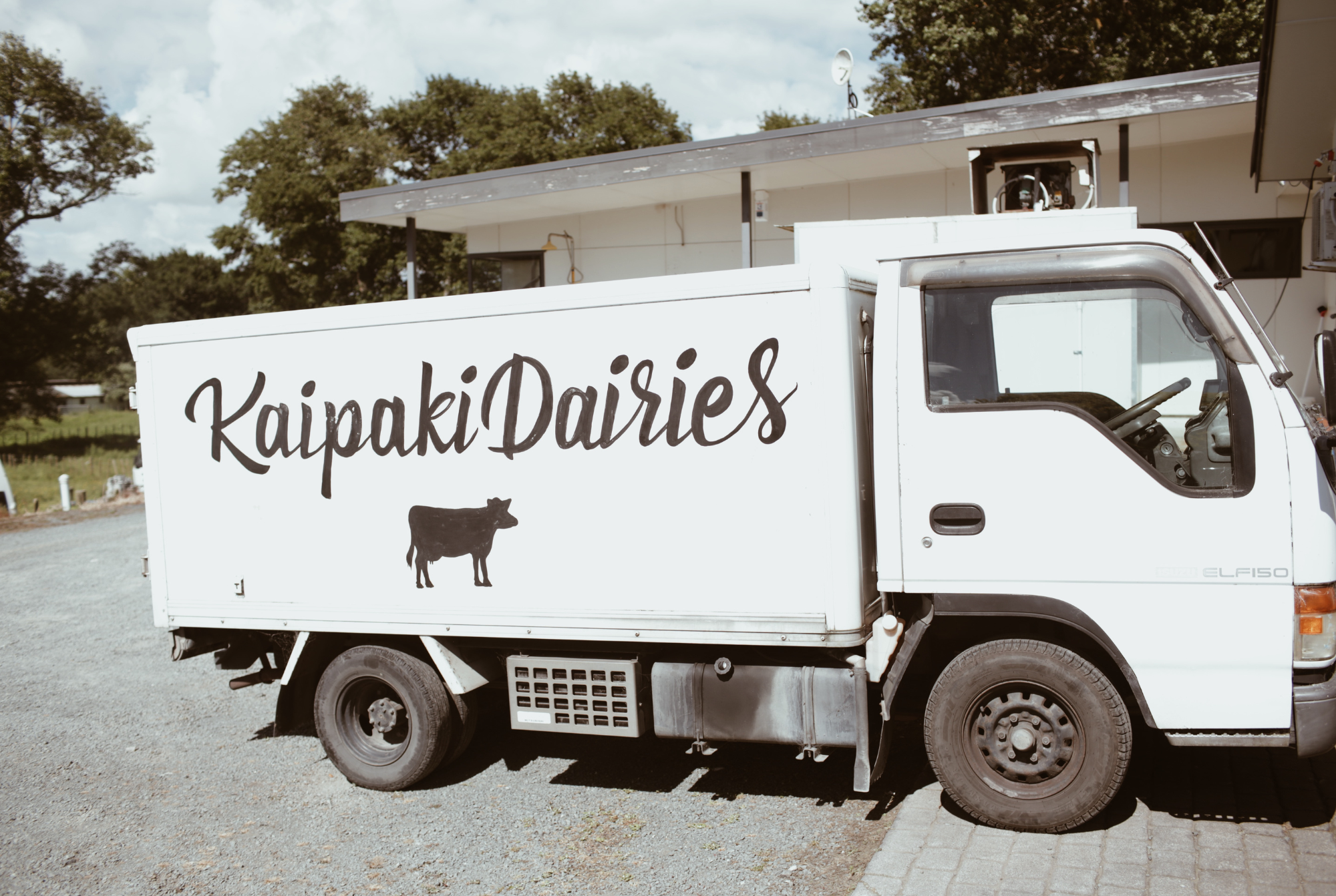
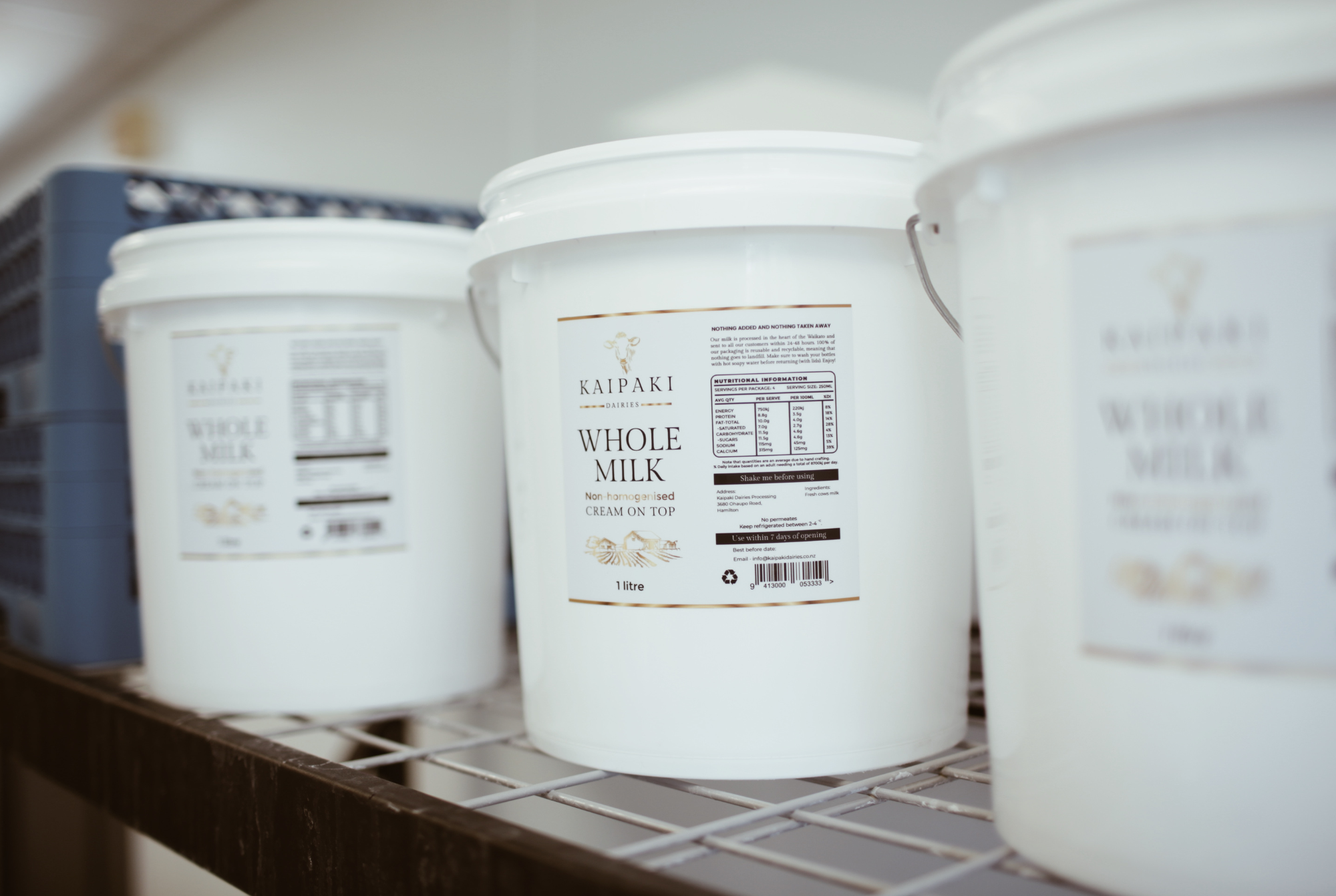
How does it work?
Teaming up with Paul, a dairy farmer in Kaipaki who provides them with truly high-quality milk from truly happy cows, John and Riley took a gamble earlier this year and purchased all of the equipment they’d need to bring a bit of those good ole’ days back and provide Waikato businesses with a convenient service that eliminates the need for single-use plastics.
Each morning they pay a visit to Farmer Paul and pick up a tonne of milk in a giant vat that they take back to their processing facility and divvy up for all of their customers.
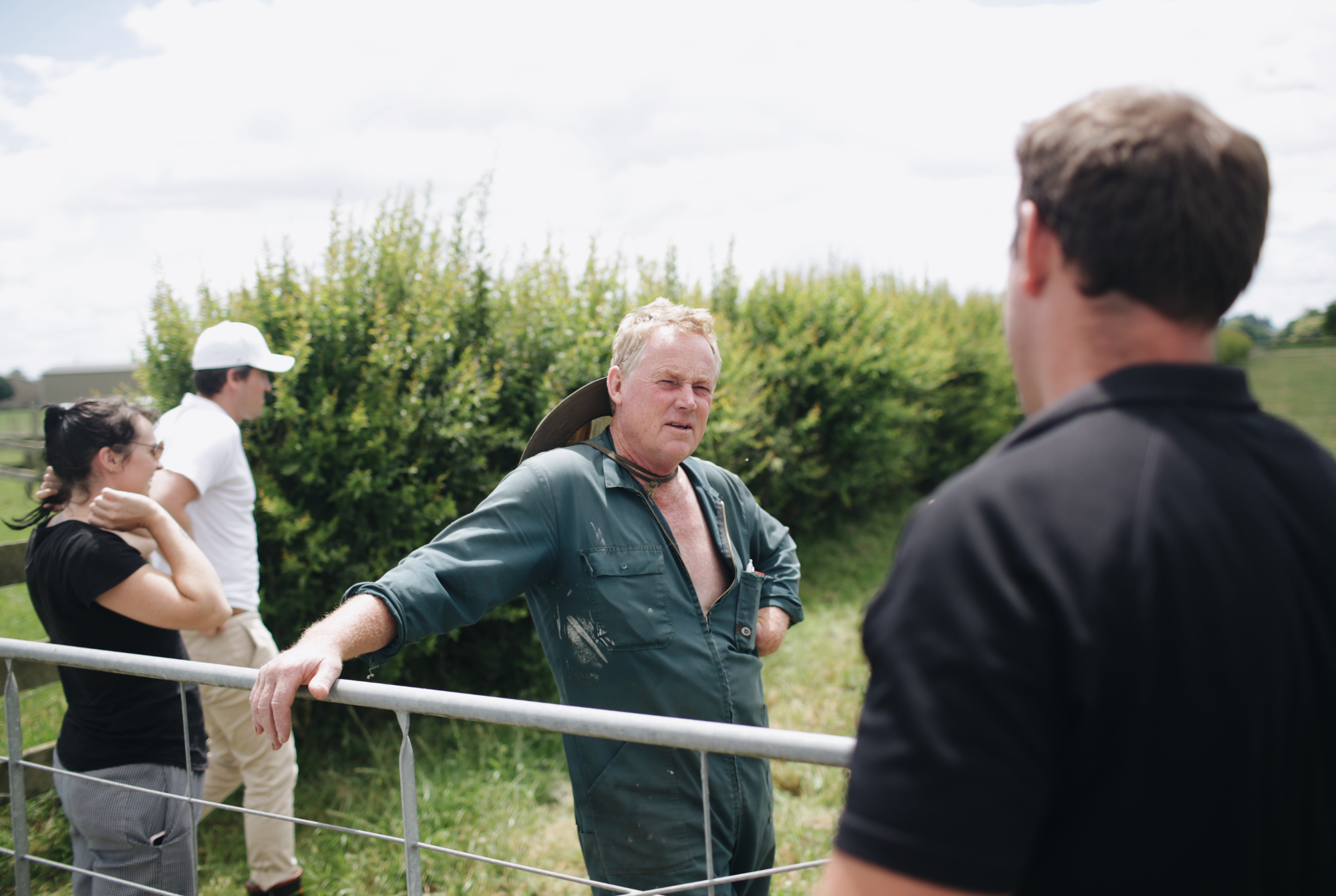
For cafes (like our store in Greenhill) the milk is delivered in an 18L keg that is placed into a fridge beneath the counter and fed through a very fancy looking milk tap for making coffees. And for producers like our bakery, the milk is delivered in 10 litre buckets that are stored in our chiller.
Once we’re getting low, we let the guys know they drop off a fresh batch and take away the empty vessels to be sterilised and reused in their state-of-the-art facility. Click here to read more about the Milk Tap technology.
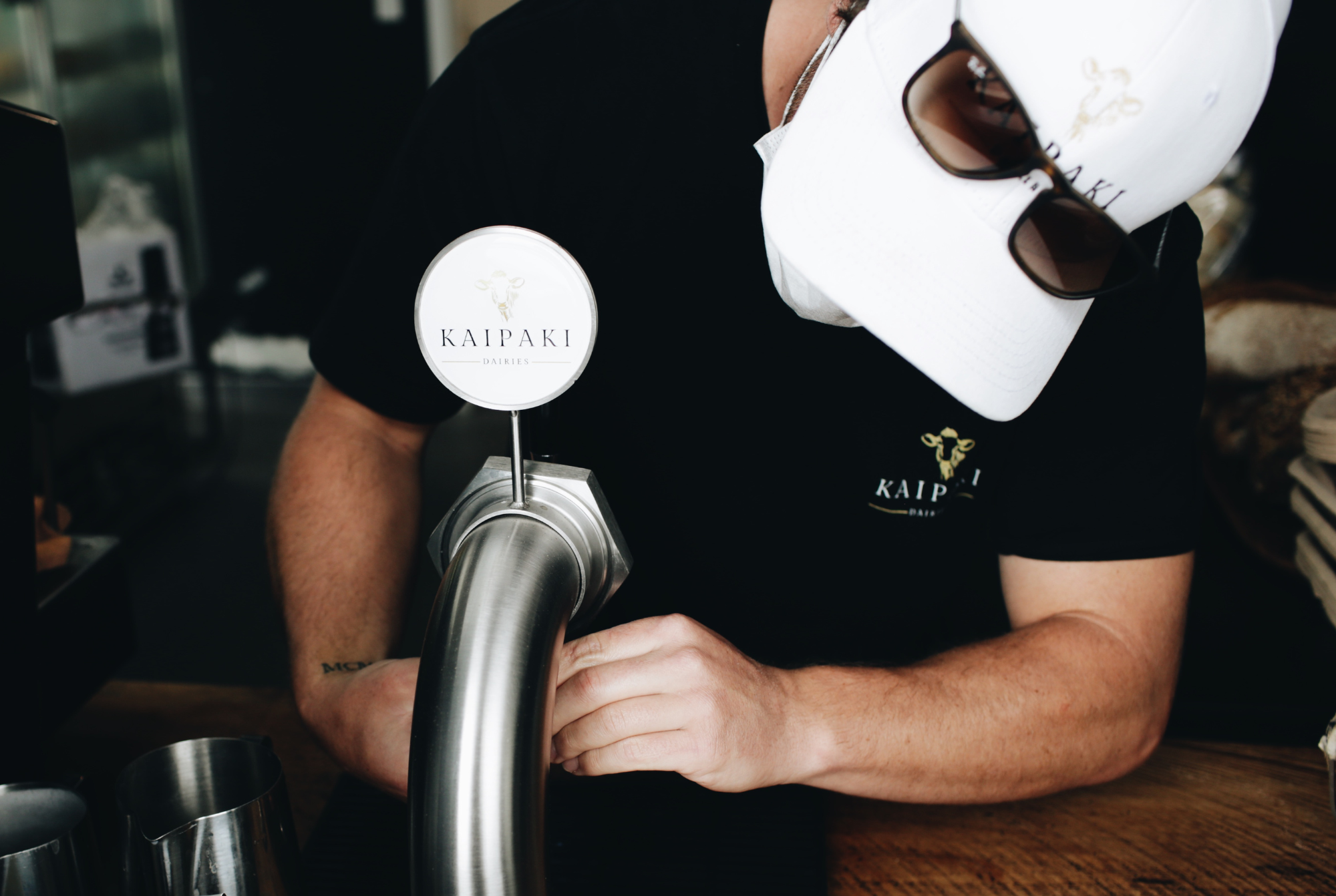
Touring Kaipaki Dairies
On a beautiful sunny day in the Waikato, John and Riley were kind enough to give us a tour of their facility and of Paul’s farm just down the road. They took us through the process of getting the milk ready for bottling, of sterilising every bottle and how each one is filled. They explained to us that Kaipaki milk is non-homogenised, which is why it is so much creamier than most milk and is often more agreeable for your stomach (especially if you’re sensitive to dairy).
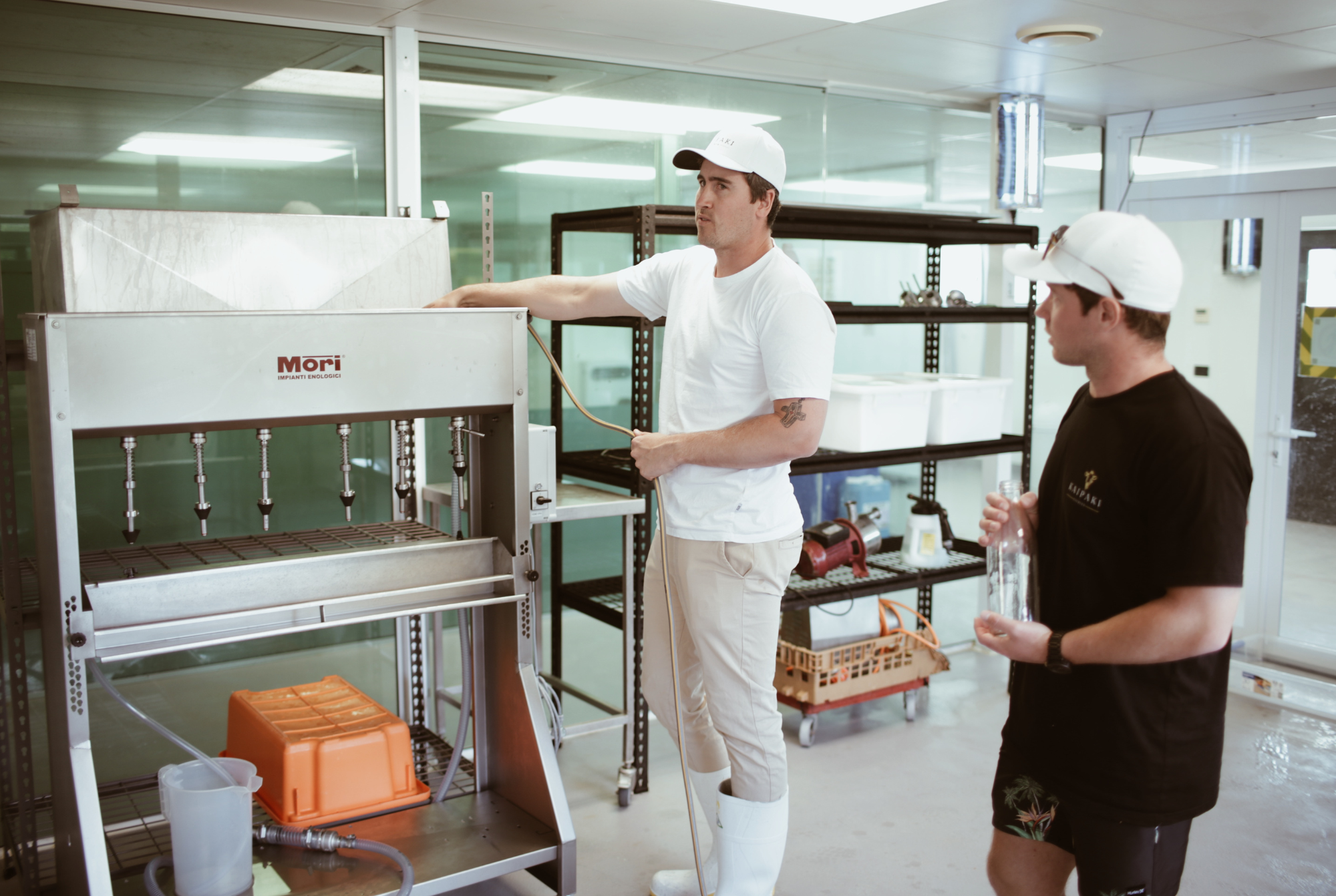
Originally John’s idea to buy the business, he reached out to Riley (a friends younger brother) who grew up on a dairy farm outside of Te Awamutu and knew the in’s and out’s of the industry. They candidly shared the up’s and down’s of starting their own business – and some of the tough lessons they’ve had to learn along the way – a genesis story not so dissimilar from Volare’s own. Waking up at the crack-of-dawn and working endless hours because they truly believe in the quality of their product and believe that the industry is ready for a change.
And it seems they’re doing something right. Because in a year of multiple lockdowns that have been especially tough for the hospitality industry, they’ve continued to grow. Perhaps it’s the ease of working with them and their willingness to go the extra mile, or maybe it’s simply that although this year has been tough, everyone is ready for a change.
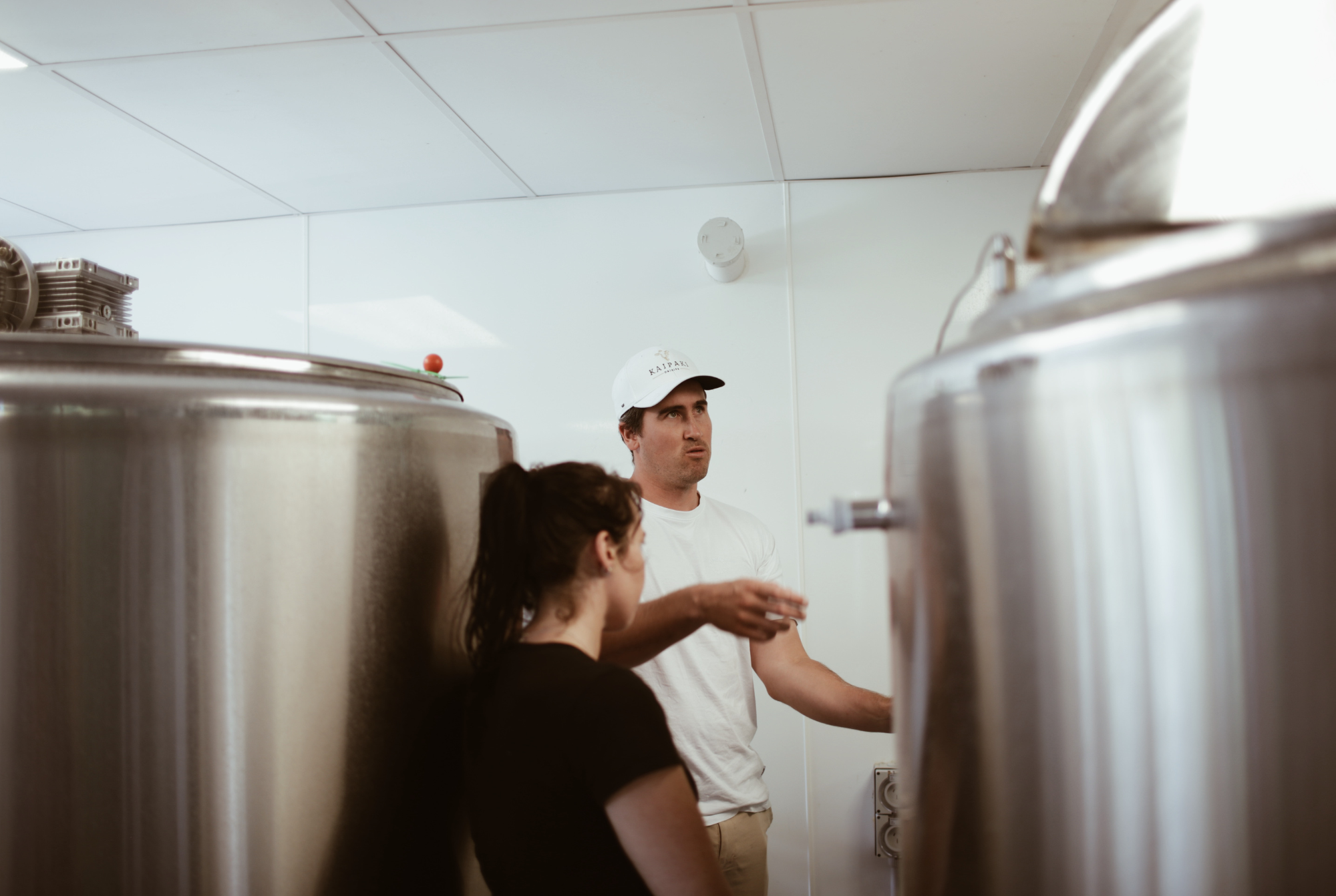
Touring The Farm
We left Kaipaki and drove over to the dairy farm in Ed’s 51 Chevy Coup because, why not make the most of it when you’re out of the office on a beautiful day? Once we arrived, Paul came flying up on his farm bike and jumped off in the most authentic dairy farmer outfit I’ve yet to see (and I’ve met a lot of dairy farmers). Brimmed hat hanging off his neck and Khaki overalls zipped part way down for breathability, it was clear this man knew his stuff. And with over 30 years in the business, I’d say that’s a pretty safe bet.
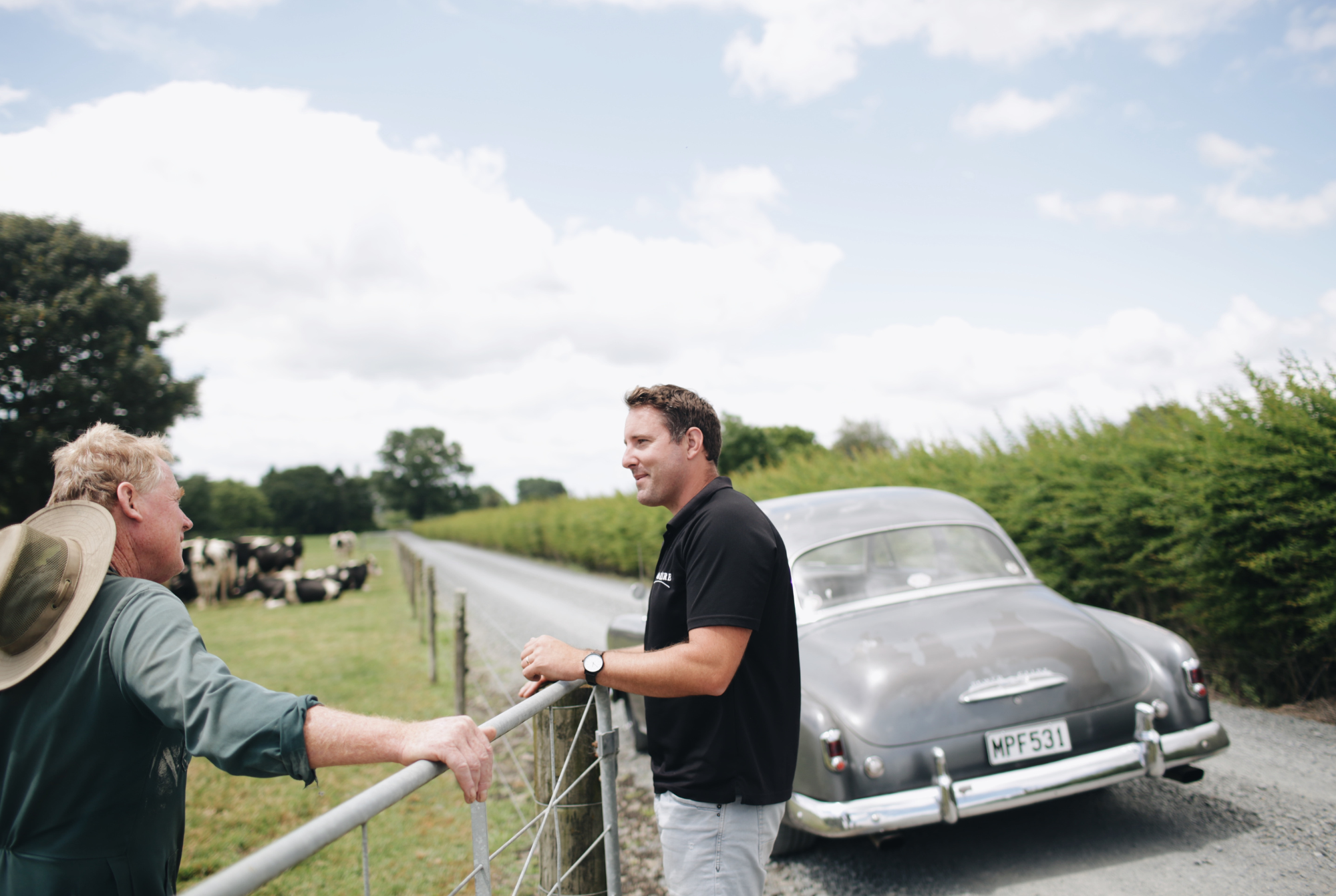
Now, as a girl who grew up on a lifestyle block in Matangi, I know a thing or two about farming (joking, obviously, the closest I got to farming was raising a pet duck). But seriously, I’ve been to my share of farms and can confidently say that very few of them are as well maintained as this one. The farm was immaculate and the cows were the happiest I’ve ever met. Paul told us a little about his life story and about his style of farming, explaining his philosophy of “no hungry days.” The pasture is lush, the fences are perfect, there are trees in every paddock and the cows are silent (i.e: not crying out for food) and inquisitive (i.e: not scared of humans.) The place was almost serene.
Paul told us that his 200 hectares is home to 580-600 cows and that each cow produces about 9000 litres of milk a year. The New Zealand average is only half of that. His secret? No hungry days! When you feed cows well, he explained, they have a longer lactation period, less mastitis and stronger immune systems so there’s less need for antibiotics and overall less stress on the cows. Basically, well fed cows are happy cows.
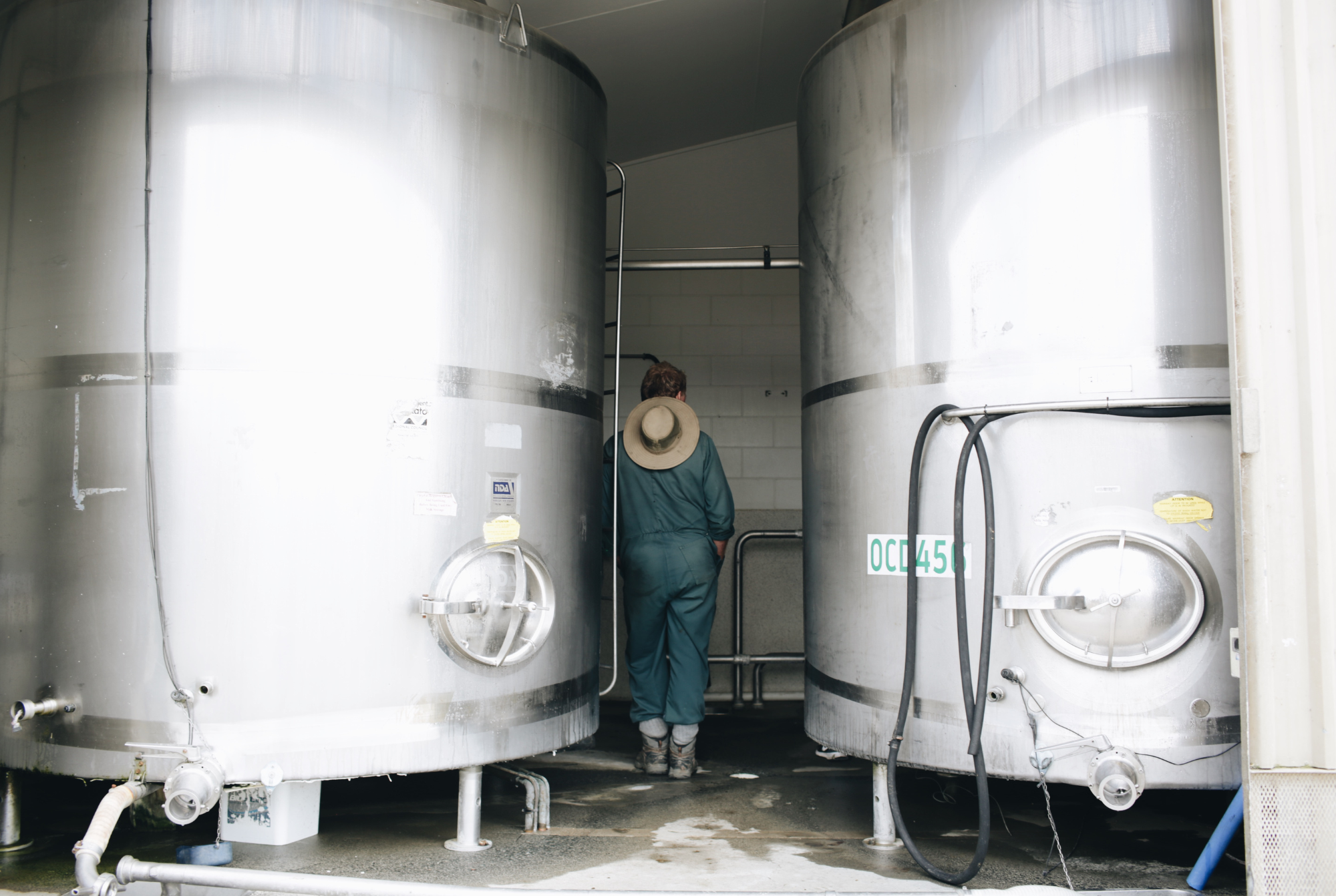
It’s clear that Paul admires what John and Riley are doing. That, like him, they have a strong attention to detail and care about the quality of the product and everything that goes into that. He also said that when he started this way of doing things back in 1989 when he finished uni, it wasn’t the norm but he’s excited to see the industry is changing. More and more farmers are starting to realise that happy cows equals more milk, better milk, and happy customers. It’s a win, win, win and we are excited to be part of it too.
A huge thank you to John and Riley for our enjoyable day out of the office. We can’t wait to watch Kaipaki grow and hope that you’ll all get behind them. And if you’re interested in supporting them, head over to their Instagram to give them a follow or check out their website at www.kaipakidairies.co.nz if you want to work with them.
Written by the girl who turned up to a farm tour in a floral dress and obviously knows what she’s talking about when it comes to farming. Thank you for coming to my Ted Talk…